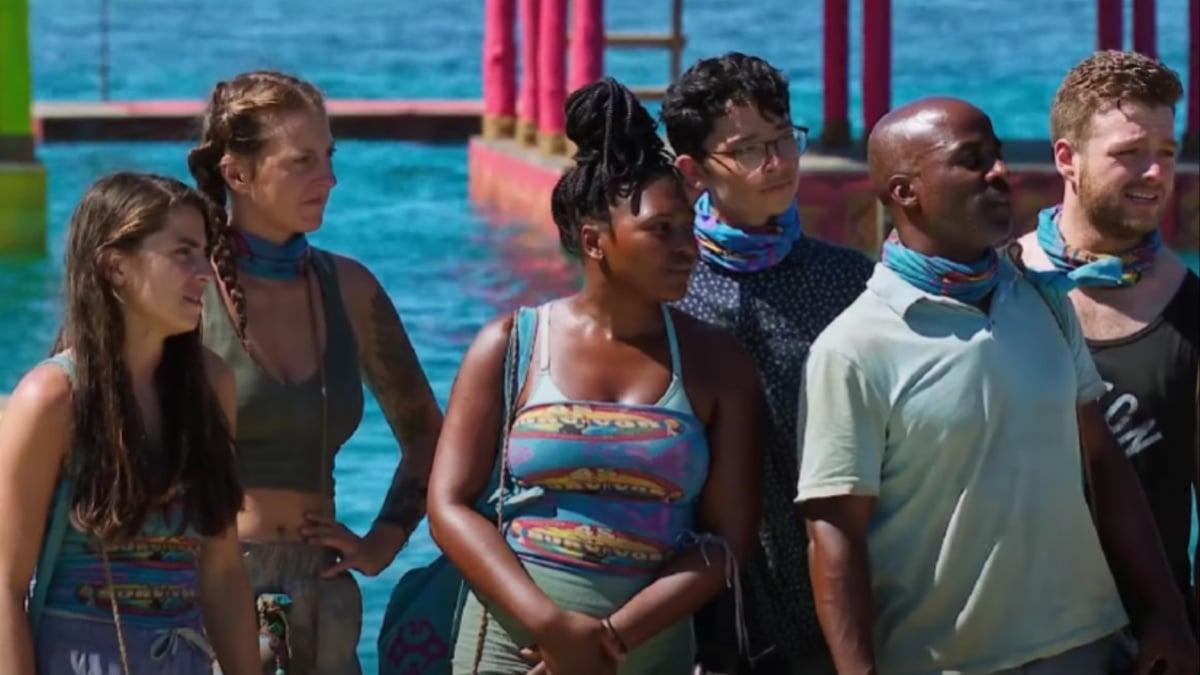This article contains spoilers for ‘Survivor’ season 45, episode 2 which aired on Wednesday, Oct. 4.
The times of gaming the system to sit out weak players during crucial Survivor challenges are over. Longtime host and showrunner Jeff Probst revealed a rule change during Survivor 45’s second episode.
As the three tribes stood in front of Probst ready to compete in a water-based contest to secure immunity from Tribal Council, the 61-year-old Survivor frontman informed them that a player couldn’t sit out in back-to-back challenges.
Because Reba and Belo still had all six castaways and Lulu fell to five in episode 1, one player from each tribe had to withdraw from the Immunity Challenge to even up the score.
Contestants sitting out has always been an element of Survivor. The challenges are designed for tribes to compete with the same number of players. So, what’s different?
In short, Probst told Entertainment Weekly in an interview published Oct. 4 that the selection process will no longer reset after every Tribal Council like it used to, which in turn leads to a tribe not sidelining a weaker competitor at every Immunity Challenge.
“In the early seasons of Survivor, there were always two challenges: a reward challenge and an immunity challenge,” Probst said. “The sit-out rule was designed to force a critical decision because if you sat out of the reward challenge, you were forced to compete in the immunity challenge. So it came down to strategy. If you really wanted to win [a] reward, you might sit out your weakest player, but if you did, that weak player would then have to run in the immunity challenge. And Tribal Council was always the reset, which meant it was a clean slate with the next challenge.”
“In this new era, we often only have one combined reward/immunity challenge,” Probst continued. “So tribes could sit someone out of the challenge, then Tribal served as a reset, and the next challenge they could sit the same person out again.”
He went on to say that the old way of choosing players didn’t produce a “dilemma.” Knowing the process would restart at the start of every round of play, tribes could manage who sat out based on the stakes. One example would be benching a strong player for a Reward Challenge so they could be fresh and eligible to compete in the Immunity Challenge — a much more important battle to win — which was a smart strategy.
Admitting it took him and his team longer than it should’ve to fix the “broken” system, Probst said it popped up on his radar thanks to a fan who sent in a question during an episode of On Fire: The Official Survivor Podcast.
“Either way, we’ve changed it and we’re back on track,” Probst said. Strategizers, take note.
